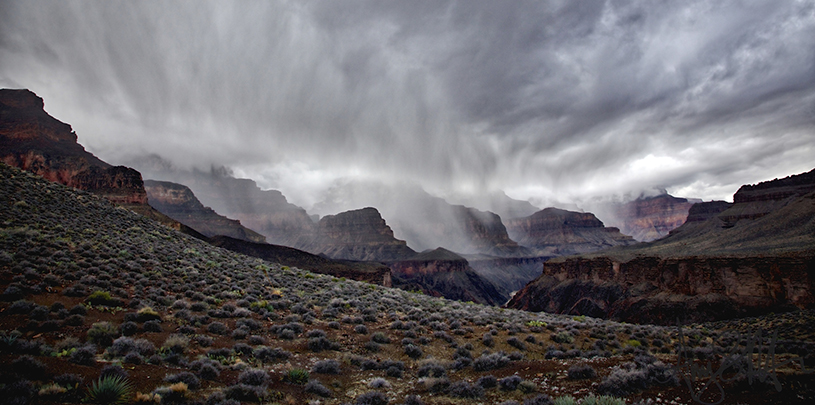
 by Roger Clark, Grand Canyon Director
by Roger Clark, Grand Canyon Director
Late last month, headlines asked: “Do Charles and David Koch want to mine the Grand Canyon for uranium?”
The Koch brothers’ involvement in the politics of western lands is not news. But how their money is undermining efforts to protect the canyon was hidden until recently.
In January, the Arizona Chamber of Commerce announced its opposition to a national monument that would ban new uranium mining on public lands surrounding Grand Canyon National Park. The chamber claimed the new monument “would designate another 1.7 million acres of Arizona as federal land.” In fact, the lands proposed for the national monument are already federally-owned and have been since well before Arizona’s statehood in 1912.
These and other false claims raised the suspicions of Greg Zimmerman, who went on to research and document how Koch enterprises are channeling money to fight the proposed monument.
Native American leaders are campaigning to protect their cultural homeland through a presidential proclamation of the Greater Grand Canyon Heritage National Monument, which 80 percent of Arizona voters support.
“I have lived in and around the Grand Canyon all of my life, and in later years I saw the wonders of these lands,” said Havasupai Vice Chairman Edmund Tilousi. “It was then I saw the power and the spirit of God.”
Navajo President Russell Begaye joined Tilousi and other native leaders to outline the need for this new national monument. Their words sum it up best:
Their conclusion: “We cannot survive intact as people without an intact Grand Canyon.”
The leaders then called on President Obama to “…do what is right for Grand Canyon, for the people and cultures that depend on Grand Canyon, and for the American people as a whole: designate the Greater Grand Canyon Heritage National Monument.”
“There’s a fight over the Grand Canyon,” writes Arizona Republic columnist Linda Valdez. She continues:
Arizonans are on one side. Many of their elected representatives are on the other. It’s a high-stakes battle in a long-running war about whether public land is meant to be used for profit or for conservation. It’s also a question of whether elected officials represent the people who put them in office—or themselves.
The reason that the Arizona Chamber of Commerce and a handful of politicians oppose the national monument boils down to the power of the mining industry and other vested interests to act against the will of the people.
Valdez concludes: “The Grand Canyon belongs to every American—the people get that. It should not be imperiled for anyone’s profit or political ideology—more politicians need to hear that.”
The Grand Canyon Trust is also actively supporting the proposed monument and countering misinformation with facts.
Your ongoing support to Keep the Canyon Grand is our most highly-valued asset. Now more than ever we need your help to keep a handful of vested interests from undermining our national heritage.
As Greg Zimmerman concluded: "The Grand Canyon and the lands around the Grand Canyon are sacred – I think all Americans recognize that. It’s truly an incredible landscape, and the threat of uranium mining around the Grand Canyon poses a risk.”
The Colorado River below Glen Canyon Dam is heating up. Find out why.
Read MoreGroundwater pumping at a uranium mine near the Grand Canyon will affect the canyon's springs, scientists says.
Read MoreArizona Governor Katie Hobbs is the latest elected official to call for an environmental review of Pinyon Plain uranium mine.
Read More